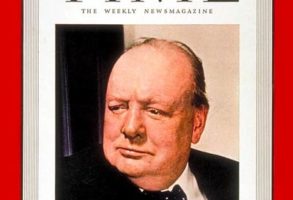Published February 26, 2020
The Democrats’ “debate” in Charleston was arguably the worst in American presidential history. That’s an audacious, yet defensible, claim. It was certainly the least dignified—assuming anyone cares about dignity anymore. If the Democrats were trying out a play for Broadway—which is what they are doing, except that Broadway in this case is the 1600 block of Pennsylvania Avenue—they would close the production in Bridgeport. The actors would disperse and find other lines of work.
“Debate” is not the right word for what happened. It was a free-for-all, a sort of demolition derby. The mess was partly the fault of the feckless—almost absentee—moderators from CBS News. Mostly, it was the result of the chaos and mediocrity that seem to catalyze, as if in chemical reaction, when the Democratic candidates interact with one another.
The stated reason for such occasions is to inform voters about issues and candidates so that they might make a more intelligent decision in casting their ballots. The candidates’ real intent, of course, is to show off. In years past, candidates tried to do that in a style that was thought of as, at the very least, grown-up. They tried to present themselves as earnest, focused, well informed, occasionally witty and, though it did not happen often, eloquent. American politics owes a lot to Lewis Carroll, and the best banter in the past had a touch of “Jabberwocky”:
One, two! One, two! And through and through
The vorpal blade went snicker-snack!
Ronald Reagan’s blade went snicker-snack when he—at the ripe old age of 73 in 1984, five years younger than Bernie Sanders and Michael Bloomberg are now, and four years younger than Joe Biden—declared that he would not take advantage of his 56-year-old opponent Walter Mondale’s “youth and inexperience.”
But in Charleston, the candidates’ hands waved and waved for attention. Ooo! Ooo! Me, me, me, me! Joe Biden—a veteran of half a century at the highest levels of American politics and government—spluttered and malapropped. Grenades went off in his syntax; sentence fragments flew here and there. He glared about him in paroxysms of vindicated harrumph.
To adapt Tolstoy’s line about families, all happy political parties are alike; each unhappy political party is unhappy in its own way. In Charleston, debate disciplines vanished altogether. No time limits, no nothing. Candidates—“contestants,” as Michael Bloomberg wryly called them—talked on and on, their mouths and egos on full automatic, words tumbling out in convulsions of almost meaningless self-pleading.
Only Pete Buttigieg, the youngest by far, managed some calm and coherence. That does him more than a little good as the travesties continue: self-possession is the first requirement of leadership.
Bloomberg, who was said to have had a disastrous debate the last week, would be criticized this time as still wooden and stiff and unresponsive. He did try a little harder, raising his hand from time to time; but his air of understatement and detachment and bemusement suggested how ridiculous or anyway un-navigable he found the whole business—a perfectly sane reaction, but one that, when passed through the filter of his enemies’ politics, would reveal him to be merely the arrogant billionaire discomfited by having to mingle with the help.
The lineup was bracketed by billionaires—Bloomberg at one end, Tom Steyer at the other. Steyer, whose reason for being in the presidential race is not clear to anyone except himself, wore his signature tartan necktie and, like the others, spoke almost always at the highest pitch of indignation.
Bernie Sanders’s hunching of shoulders grows more pronounced as he leans into the microphone; you almost hope that the teacher will tell him to straighten up and mind his posture. The hunching gives him an air of conspiratorial intensity. The conventional wisdom coalescing now has it that—contrary to the earlier conventional wisdom—Sanders can win in November. Political writers like Mark Halperin are visiting Sanders campaign headquarters here and there and emerging to report persuasive levels of energy and idealism. The coronavirus adds an anything-can-happen metaphysics to the moment. The old rules don’t apply. America, once fairly reliably situated just a little to the right of center—in the Eisenhower Zone, one might call it—might now be ready to elect a democratic socialist, according to this thinking, especially since 2016 broke through the barrier in the other direction and elected Donald Trump. It’s Newton’s Third Law of Motion applied to American politics: for every action, there is an equal and opposite reaction.
Amy Klobuchar comes from a Minnesota-progressive neighborhood in the middle-western, Eisenhower longitudes. But in Charleston, her claim to heartland reasonableness had the quality of desperation, which was perhaps not her fault. But she blathered on and on like the others.
Of the bunch, though, Elizabeth Warren was for me the hardest to endure. She gasps and pants in relentless, aggressive self-righteousness. She went after Bloomberg again, laying about her with the Jedi sword of #MeToo, but the message was really: Me, me, me.
It would be fun if one could watch all this with H. L. Mencken’s exuberance and disdain, operating on his premise that politicians are all, as a matter of course, fools and blackguards and poltroons and all the other colorful pejoratives that he fetched from his thesaurus. That perception of the natural and vivid mediocrity of politicians—though of course unfair on a case-by-case basis and, technically, unjust as a generalization—had a liberating effect upon the bourgeois sage of Baltimore. It gave his prose a gleeful animation when he contemplated spectacles like the one in Charleston.
But in the minds of the party faithful and their sympathizers at MSNBC, the 2020 Democratic candidates have enjoyed an unearned immunity from this sort of Menckenesque criticism. That’s in part because they have so little sense of humor or irony about themselves and in part because the mission to oust Donald Trump is a crusade not to be taken lightly—or, it seems, to be approached coherently.
It will be hard to watch another one of these productions. I think I will give it up. The play needs a total rewrite.








